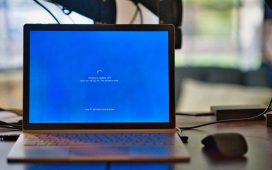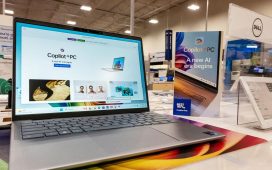
In short, Android tablets are intended for “productive mobility,” as [Google Senior Director of Product Management Alexander] Kuscher describes it — with content consumption being the top priority and a bit of more complex productivity being an occasional add-on.
Chromebook tablets, on the other hand, are the exact opposite: They’re intended for “mobile productivity,” with the active work being the primary purpose and the more passive consumption being a pleasant side perk.
Ideally, with all the devices feeling consistent and connected, the purchasing decisions will be mostly about what specific product feels right for what purpose, all overlap aside — and once said product is in hand, its owner won’t even think much about what platform or operating system is involved.
And one more excerpt that suddenly feels freshly pertinent:
“What’s underneath doesn’t really matter to the user. You could have 10 different operating systems, one for each form factor, if you wanted that. The important piece is what you present to the user.”
That, Kuscher says, is why Android and ChromeOS have continued to grow more consistent and connected over the years. In Google’s view, the operating system is less important than the experience — and increasingly, it’s working to present experiences that are so similar that they feel more like different branches of the same tree than completely separate forests.
Hmmmmmm. Veddy eeeenteresting in the context of our current conversation, wouldn’t ya say?
Now, to play devil’s advocate for a moment: I still have my doubts about how often most people would actually use an option like this. I mean, really: How frequently are you in a position where you have a monitor, keyboard, and mouse available but not a full-fledged computer? That’s a huge part of what limits the usefulness of current desktop mode concepts on Android, in addition to their less-than-optimal desktop environments and clunky user experiences.
But the presence of ChromeOS would at least address the latter part of that limitation. ChromeOS is extremely capable as a desktop operating system these days, and its everything-connected-to-the-cloud philosophy would actually be a brilliant match for this setup — where plugging in, powering up, and having all your stuff right in front of you from wherever you were working last would be a major asset for on-the-go productivity.











